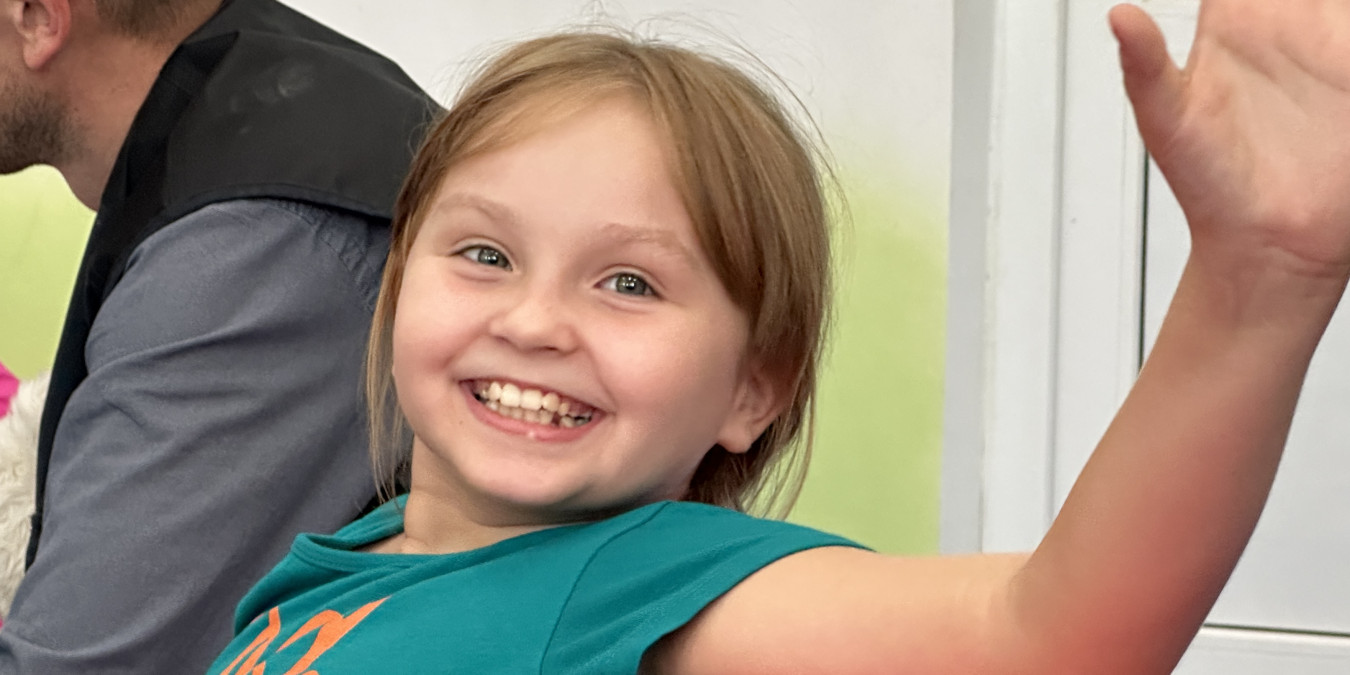Helping Children Cope with the Aftermath of War
Published: Oct 10, 2023 Reading time: 4 minutes Share: Share an articleWar ruthlessly destroys not only homes, infrastructure, and the environment, but also human souls. According to the World Health Organisation’s research, every fourth Ukrainian is at risk of a mental disorder amid these horrifying events. While adults can often find ways to cope, children require a special approach. Shelling, forced displacement, the loss of loved ones, and separation from friends, have a seriously traumatising effect on the little ones. On World Mental Health Day, we share how we help children cope with the consequences of war and give parents advice on what to pay attention to when communicating with their kids.

In a child-friendly space in Kharkiv, another session is underway. Young visitors work their magic on drawings and paint plaster figurines. But this is no ordinary art lesson. Our psychologists conduct these sessions as part of the "Safe Space" program. Its main goal is to help children cope with stress after traumatic events. Unlike crisis psychological support, which is provided immediately after a negative impact, this program can be applied even a year later.
"Working with children is crucial, even in safe areas. We must help them acquire or restore safety skills, reduce emotional tension, develop emotional control and communication skills, and rebuild trust," says psychologist Kateryna Dubrova.
Tetiana, who recently turned 9, moved to Kharkiv with her grandmother. Unfortunately, one of her strongest memories of her hometown revolves around shelling. She finally feels safe in her new place.
"I feel good here. It's quiet. You can draw, sculpt, and do various crafts. I like it," Tetiana says when asked about her activities.
While observing the children’s behaviour, experts offer them support. If needed, parents are included in this process. Tetiana is glowing with joy. With the help of professionals, she quickly adapted. Some children need more time, like a 10-year-old boy from Kupіansk. He has had a disability since birth.
"During our sessions, he started working with other children, participating in writing exercises, games, and interactive activities. He also began perceiving questions, reacting to them promptly, and providing short, sound answers," Nadiіa Vovk explains.
Our psychologists aid children with disabilities and special educational needs. The main thing is to recognise mental health disruptions in a timely manner, as the signs are often hidden. Sometimes, behaviour changes can occur over weeks, months, or even years.
One of the factors influencing children’s emotional disorders is forced relocation. To help schoolchildren adapt successfully to a new society, teachers must ensure friendly group relationships.
As part of the project "Educational Consortium in Ukraine: Safe Return to Learning," we have engaged teachers in the "Welfare of Ukrainian Teachers" programme. During training seminars, teachers work on problems caused by stress and master self-help skills, grounding, or "awareness" skills that can be useful when working with children in a state of depression.
"Signs of anxiety include poor sleep, decreased appetite, lethargy, isolation, low activity, avoiding contact, aggressive behaviour, intrusive thoughts or memories, crying, and emotional instability," list the psychologists.
To overcome these states, children also need calm parents. They must set the example of emotional balance, because children absorb the behaviour and emotions of their close ones like a sponge. However, if the "anxious bells" haven't disappeared, it's essential to seek help from professionals.
Parents should also ensure their child feels at home as much as possible. This primarily involves a personal space which should be filled with little things like home slippers, pyjamas, or their favourite toys. These things will help children feel cosy and comfortable.
"It is important to communicate as much as possible and talk about your feelings. Don't demand more from the child than they can do and react to all their actions calmly and with love."
It's also very important for adults to listen to their own feelings. Sometimes, just one conversation with a psychologist is enough to look at the problem differently and find a lost resource. You can do this right now. Our 24-hour psychological support hotline 0800210160 is available around the clock and is free of charge.
ADDITIONAL INFORMATION:
Psychologists at People in Need have been working with those affected by the armed conflict for 10 years. 34 psychologists from mobile teams provide individual and group consultations throughout Ukraine. Emergency support is provided to those affected by shelling. If face-to-face communication is difficult, consultations can always be obtained anonymously over the phone.


